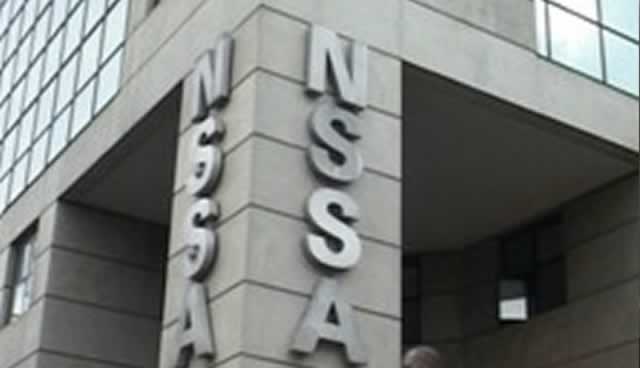NSSA to write off US$30m . . . as Capital Bank winds up

 Martin Kadzere Senior Business Reporter
Martin Kadzere Senior Business Reporter
THE National Social Security Authority may write off over US$30 million it invested in Capital Bank, as it winds up its operations, the authority said this week.
NSSA, the 86 percent shareholder in Capital Bank, has also authorised the sale of the bank’s 21 percent stake in First Mutual Life with proceeds being used to partly pay off depositors.
But even writing off US$30 million, the authority says it has accrued more benefits than what it invested through Capital Bank-linked investments.
NSSA is benefiting from the insurance business under First Mutual Life which it acquired through Capital Bank, former Renaissance Merchant Bank, and its subsidiary, Pearl Properties.
“If anything, the authority may only lose the US$30 million that it has invested in the bank as equity, but that investment has already brought benefits to NSSA through the investment in FML,” said NSSA. Last year, the FML shareholding contributed US$176 million to NSSA’s balance sheet figure of US$886 million.
The NSSA board resolved to discontinue the operations of the bank by paying off all creditors and depositors and it has since applied for a micro-banking licence.
Initially, NSSA invested US$24 million in Capital Bank last year, then under curatorship.
And in February this year, it converted its deposits in the bank to equity in a rights issue.
As such, the total invested in the bank by way of equity amounts to US$30,2 million equivalent to 86 percent shareholding of Capital Bank. NSSA resolved to invest in Capital Bank with high expectations of a return on investment. This, however, did not materialise as the debtors’ book did not perform as had been intimated by the curator.
Instead, the fresh capital injected into the bank was used to settle old depositors leaving little or no funds for new lending. The bank rebranded in an effort to attract depositors but non-performing old loans militated against the revival of the bank.
Even a fresh cash injection of US$6 million by NSSA in a rights issue did not help. Instead, the financial situation of the bank worsened with capital levels falling from US$20,1 million in March last year to US$17,3 million by August 2013.
NSSA said the “first port of call” in the process of closing down the bank was the disposal of the FML shares that the bank holds.
“Since NSSA already enjoys a direct controlling interest in FML, the authority has already authorised the disposal of the shares,” it said. “Where bank resources are not enough, then shareholders will be called upon to provide resources to satisfy outstanding liabilities.
“The bank will have to follow up on all recoverable debts to avail funds to pay off depositors and other creditors. It may take time to recover some of this money but pressure will be exerted on borrowers to make sure payments are made.
“In this exercise, even debts that have been written off in the bank’s books should be recognised in this effort to recover amounts owed to the bank. Non-payment of loans is the root cause of the bank’s problem therefore stiffer measures will be used to recover the funds owed to the bank.”
The bank owes NSSA, as a depositor, US$8,9 million and since these deposits are secured, NSSA will take over the pledged securities in order to reduce the outstanding deposits owed by the bank. This way, the bank liabilities will be reduced.
The projected outstanding obligations of the bank up to 31 December 2013 is US$39,6 million of which US$12,9 million is for the PTA Bank and Norsard. If this could be negotiated, it means only US$26,7 million is the total obligation by 31 December 2013.
With US$28,3 million expected to be collected by year end, then obligations of US$26,7 million would be covered. While analysts have expressed concern over the disposal of the bank given the investment likely to be written off, NSSA said the investment in Capital Bank exposed it to the “entitlements” greater than the amount invested at the consummation of the transaction.
The investment in Capital Bank provided NSSA with an opportunity to end up First Mutual as the major shareholder.
“The closure of the bank would not be prejudice the authority going forward with respect to these opportunities, but more so consolidate the gains that would accrue to NSSA from an income and net worth perspective.”
It would have been difficult for NSSA to acquire the initial 19,84 percent stake in the open market.
However the composite agreement resulted in NSSA acquiring a 19,84 percent FML stake from Econet. Before the transaction, NSSA had about 3 percent shareholding in FML.
Added to the resultant 22,7 percent direct shareholding, NSSA also became an indirect beneficiary of Capital’s 33 percent shareholding in FML. After a rights issue that was done by FML in December 2012, which saw other shareholders not following their rights, NSSA direct shareholding in FML was raised to 51 percent with the indirect shareholding through Capital Bank having been reduced to 21 percent.








Comments